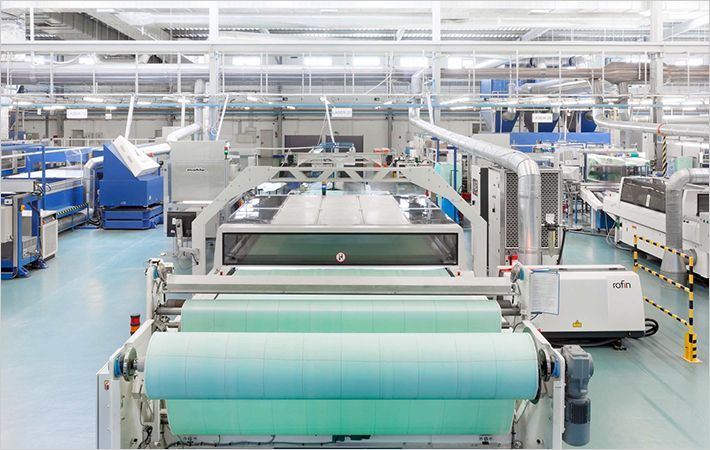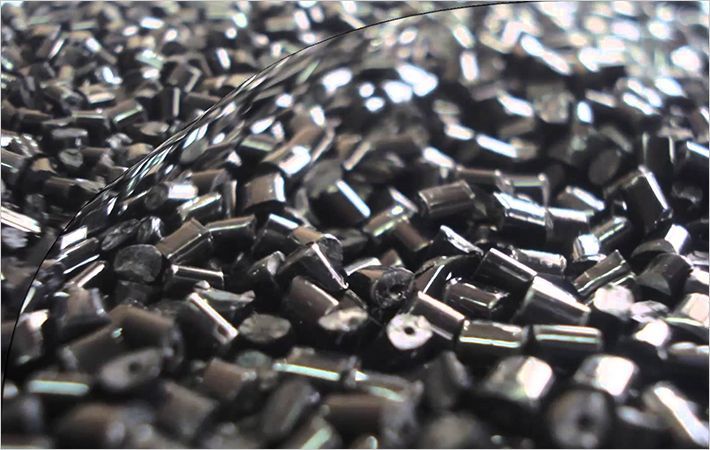A notable aspect of this second generation technology is the ability to melt the resin and to control its initial cure to the shaped solid below 200 C.
This permits NRL's phthalonitriles to be processed in the same way as ordinary commercial resins, using standard industrial composite manufacturing methods—a vital technological advantage to the aerospace, ship, and other domestic industries.
The oligomeric PEEK-like phthalonitrile is a liquid above 50 C and polymerizes to a thermoset occurring above 150 C, giving it an ample processing temperature window.
The rate of polymerization is controlled as a function of temperature and the amount of curing additive, and the fully cured void-free phthalonitrile polymer does not exhibit a glass transition temperature (does not melt or soften) when post-cured to temperatures greater than 375 C. NRL's phthalonitrile resins/prepolymers or resin prepregs have an indefinite shelf life without the need for refrigeration.
Current interest in the PEEK-like phthalonitrile includes aircraft, ship, automotive, and wind blade structural applications; battery casings; fire-resistant textiles and structural composites; robotic and autonomous firefighting; and ammunition casings and storage containers.
U.S. Naval Research Laboratory

